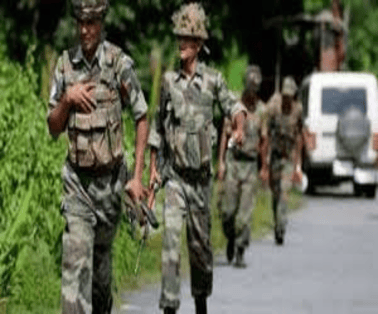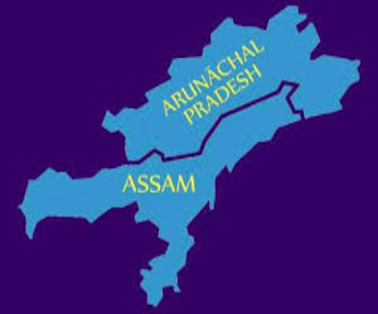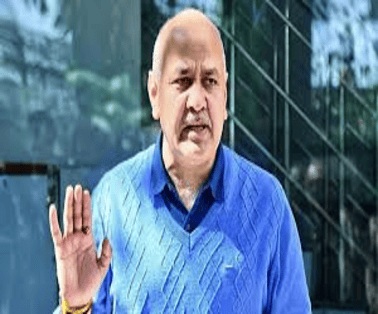The Union Ministry of Home Affairs (MHA) extended the Armed Forces (Special Powers) Act (AFSPA) in parts of Nagaland and Arunachal Pradesh for another six months.
Key Highlights of the Latest AFSPA Extension
- As per the latest notification, the AFSPA has been extended in whole of eight districts and 21 police stations in five other districts of Nagaland for another six months.
- The notification issued under Section 3 of the AFSPA for a period of six months with effect from April 1, “unless withdrawn earlier,” will be effective in Dimapur, Niuland, Chumoukedima, Mon, Kiphire, Noklak, Phek and Peren districts and in Khuzama, Kohima North, Kohima South, Zubza and Kezocha police stations in Kohima district etc
- The last time the AFSPA was extended in these areas was on September 26, 2023.
- In another notification, the Ministry extended the AFSPA in Tirap, Changlang and Longding districts in Arunachal Pradesh and the areas falling within the jurisdiction of Namsai, Mahadevpur and Chowkham police stations in Namsai district of the State along the Assam border for another six months
What Is AFSPA?
- The introduction of the AFSPA says that it has been enacted to assist state governments which were incapable to maintain internal disturbance.
- The AFSPA grants the armed forces extraordinary powers and legal immunity to bring back order in areas designated as “disturbed” by the government.
- Possession of firearms by civilians is also banned under the AFSPA. The law also confers special power on non-commissioned officers.
- Once AFSPA is enforced in an area, “no prosecution, suit or other legal proceeding shall be instituted, except with the previous sanction of the central government, against any person in respect of anything done or purported to be done in exercise of the powers conferred by this Act”.
What Constitutes a “Disturbed Area” Under AFSPA?
- A disturbed area is one which is declared by notification under Section 3 of the AFSPA.
- An area can be disturbed due to differences or disputes between members of different religious, racial, language or regional groups or castes or communities.
- The Central Government, or the Governor of the State or administrator of the Union Territory can declare the whole or part of the State or Union Territory as a disturbed area.
- A suitable notification would have to be made in the Official Gazette.
- As per Section 3, it can be invoked in places where “the use of armed forces in aid of the civil power is necessary”.
Origin and History of AFSPA
- On August 15, 1942, the British administration enacted the Armed Forces (Special Powers) Ordinance to suppress the Quit India Movement launched by Mahatama Gandhi a week earlier.
- The ordinance enlisted the armed forces “in the aid of civil power” to put down the Indian independence movement during the Second World War.
- Modelled on the colonial-era ordinance, AFSPA was promulgated in Parliament in September 1958.
- Simply put, the legislation allows armed forces to control and maintain public order in areas designated as “disturbed”.
What Are The Special Powers Grandet under AFSPA?
Under Section 4 of the AFSPA, an authorised officer in a disturbed area enjoys certain powers.
- Any suspect can be arrested without a warrant.
- Armed forces can search any house without any warrant and required force can be used to search it.
- Under this law the armed forces have the authority to prohibit gathering of five or more persons in an area.
- In some cases the forces can open fire on the disturbing factors after giving due warning if they found any suspicious person.
- If a person is repeated offender and tries to disturb the peace of the area, then armed forces are entitled to use force till his death.
- If the Armed Forces suspect that any militant or offender is hiding in any house/building then the site or structure can be destroyed by the forces.
- Any Vehicle can be stopped and searched.
- Even in the case of wrongful action by the armed forces, legal action is not taken against them.
- Individuals who have been taken into custody have to be handed over to the nearest police station as soon as possible.
- Prosecution of an authorised officer requires prior permission of the Central government.
Criticism Of AFSPA
- The controversy surrounding the Act has to do with the powers it grants armed forces.
- The exercise of these extraordinary powers by armed forces has often led to allegations of fake encounters and other human rights violations by security forces
- Various human rights activists and groups have said that the AFSPA has led to human rights violations, while allowing members of the armed forces to operate with impunity.
- Manipur’s Irom Sharmila has been one if its staunchest opponents, going on a hunger strike in November 2000 and continuing her vigil till August 2016.
Arguments In The Favour Of AFSPA
- On the basis of the power given to the armed forces, they are able to protect the boundaries of the country.
- In the absence of strict law, the armed forces will not be able to tackle the insurgent inside the country esp. in the Kashmir and North eastern region of the country.
- The powers given in the ASFPA boost the morale of the armed forces to ensure the rule of law in the disturbed areas of the country.
Conclusion
The recent extension of AFSPA in Nagaland and Arunachal Pradesh reflects the government’s ongoing assessment of security challenges in the North-East. While the Act continues to play a crucial role in maintaining law and order, the demand for greater transparency and accountability remains a central part of the national discourse on AFSPA.
To Download Monthly Current Affairs PDF Click here
Click here to get a free demo
Discover all about CLAT Exam



